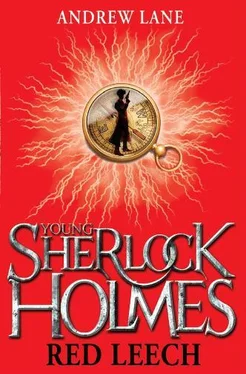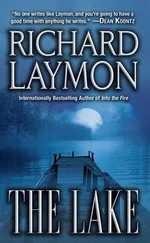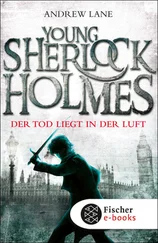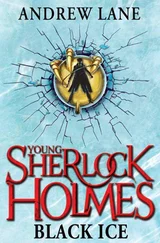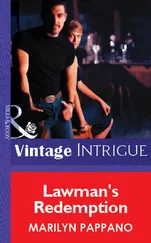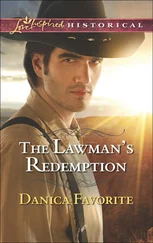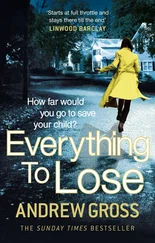“They’re not,” Crowe answered. “The fact that they are returnin’ with honey is a signal that there’s food out there, but they can’t talk to each other, they can’t read each other’s minds and they can’t point with those little legs of theirs. There’s something a lot cleverer goin’ on. Let me show you.”
Crowe reached down and deftly turned the scrap of paper through ninety degrees. The ants already on the paper walked off the edge and then seemed lost, wandering aimlessly around, but Sherlock was fascinated to watch the ants who reached the paper walking across it until they reached halfway, then turning and heading at right angles to their previous path until they reached the edge and then walking off and starting to wander again.
“They’re following a path,” he breathed. “A path they can see but we can’t. Somehow, the first few ants had laid that path down and the rest followed it, and when you turned the paper around they kept following the path, not knowing that it now leads somewhere else.”
“That’s right,” Crowe said approvingly. “Best guess is that it’s some kind of chemical. When the ant is carrying food, he leaves a trail of the chemical behind. Imagine it like a rag covered in something that smells strongly, like aniseed, attached to one of their feet, and the other ants, like dogs, have a tendency to follow the aniseed trail. Because of the 'drunkard’s walk' effect, the first ant will wander all over the place before he finds the nest. As more and more ants find the honey, some of them will take longer paths to the nest and some shorter ones. As more ants follow, the shorter paths get reinforced by the chemical because they work better and because the ants can get back quicker, and the longer paths, the wandering ones, fade away because they don’t work as well. Eventually you end up with a nearly straight route. An’ you can prove that by doin’ what I did with the paper. The ants still follow the straight-line trail even though it now leads them away from the nest, not towards it, although eventually they’ll correct themselves.”
“Incredible,” Sherlock breathed. “I never knew. It’s not... intelligence... because it’s instinctive and they’re not communicating, but it looks like it’s intelligent.”
“Sometimes,” Crowe pointed out, “a group is less intelligent than an individual. Look at people: one by one they can be clever, but put them into a mob an’ a riot can start, ’specially if there’s an incitin’ incident. Other times a group exhibits cleverer behaviour than an individual, like here with the ants or with swarms of bees.”
He straightened up, brushing dirt and grass from his linen trousers. “Instinct tells me,” he said, “that it’s nearly lunchtime. You reckon your aunt and uncle can make some space at the table for a wanderin’ American?”
“I’m sure they can,” “Sherlock replied. Although, I’m not so sure about the housekeeper — Mrs Eglantine.”
“Leave her to me. I have bottomless reserves of charm which I can deploy at a moment’s notice.”
They wandered back across the fields and through coppices of trees, with Crowe pointing out clumps of edible mushrooms and other fungi to Sherlock as they went, reinforcing lessons that he’d taught the boy weeks before. By now, Sherlock was fairly sure that he could survive in the wild by eating what he could find without poisoning himself.
Within half an hour they were approaching Holmes Manor: a large and rather forbidding house set in a few acres of open ground. Sherlock could see the window of his own bedroom at the top of the house: a small, irregular room set beneath a sloping roof. It wasn’t comfortable, and he never looked forward to going to bed at night.
A carriage was sitting outside the front door; its driver idly flicking his whip while the horse munched hay from a nosebag that had been hung around its head.
“Visitors?” Crowe said.
“Uncle Sherrinford and Aunt Anna didn’t mention anyone coming for lunch,” Sherlock said, wondering who had been in the carriage.
“Well, we’ll find out in a few minutes,” Crowe pointed out. “It’s a waste of mental energy to speculate on a question when the answer’s goin’ to be presented to you on a plate momentarily.”
They reached the step leading up to the front door. Sherlock ran up to the door, which was half open, while Crowe followed on sedately behind.
The hall was dark, with buttresses of dusty light crossing it from the sun shining through the high windows. The oil paintings lining the walls were nearly invisible in the gloom. The summer heat was an almost physical presence.
“I’ll tell someone you’re here,” Sherlock said to Crowe.
“No need,” Crowe murmured. “Someone already knows.” He nodded his head towards the shadows under the stairs.
A figure stepped out of the shadows; black dress and black hair offset only by the whiteness of the skin.
“Mr Crowe,” said the housekeeper. “I do not believe we were expecting you.”
“People speak far and wide of the hospitality of the Holmes household,” he said grandly, “and of the victuals it provides to passing travellers. And besides, how could I forgo the opportunity to see you again, Mrs Eglantine?”
She sniffed; thin lips twitching under her sharp, thin nose. “I am sure that many women succumb to your colonial charms, Mr Crowe,” she said. “I am not one of those women.”
“Mr Crowe will be staying for lunch,” Sherlock said firmly, but feeling a tremor in his heart as Mrs Eglantine’s needle-like gaze moved to him.
“That is up to your aunt and uncle,” she said, “not to you.”
“Then I will tell them,” he said, “not you ”. He turned back to Crowe. “Wait here while I check,” he said. When he turned back, Mrs Eglantine had faded into the shadows and vanished.
“There’s something odd about that woman,” Crowe murmured. “She don’t act like a servant. She acts like she’s a member of the family sometimes. Like she’s in charge.”
“I don’t know why my aunt and uncle let her get away with it,” Sherlock said. “I wouldn’t.”
He walked across to the saloon and glanced inside. Maids were bustling around the sideboards at one end of the room, preparing plates of cold meat, fish, cheese, rice, pickled vegetables and breads that the family could come in and graze on, as was the normal way of taking lunch at Holmes Manor, but there was no sign of his aunt or uncle. Heading back into the hall, he paused for a moment before approaching the door to the library and knocking.
“Yes?” said a voice from inside; a voice that was used to practising the sermons and speeches that its owner spent most of his life writing: Sherlock’s uncle, Sherrinford Holmes. “Come in!"
Sherlock opened the door. “Mr Crowe is here,” he said as the door swung open to reveal his uncle sitting at a desk. He was wearing a black suit of old-fashioned cut, and his impressively biblical beard covered his chest and pooled on the blotter in front of him. “I was wondering if it would be possible for him to stay for lunch.”
“I would welcome the opportunity to talk to Mr Crowe,” Sherrinford Holmes said, but Sherlock’s attention was distracted by the man standing over by the open French windows, his long frock coat and high collar silhouetted by the light.
“Mycroft!"
Sherlock’s brother nodded gravely at the boy, but there was a twinkle in his eye that his sober manner could not conceal. “Sherlock,” he said. “You’re looking well. The countryside obviously suits you.”
“When did you arrive?”
“An hour ago. I came down from Waterloo and took a carriage from the station.”
“How long are you staying?”
Читать дальше
